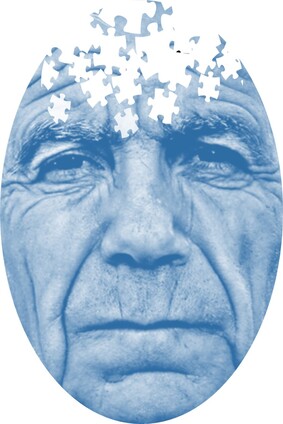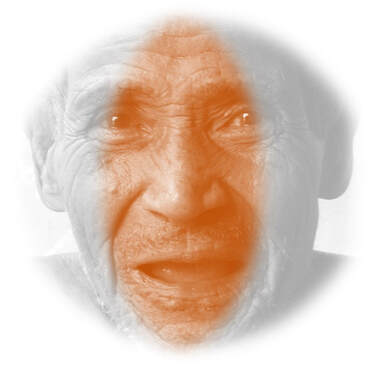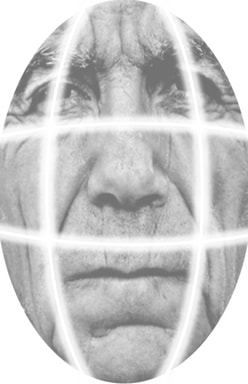|
This story is about Madhav and Eknath (both about 75). Two different men and their families, who do not have much in common. Except for a common villain, dementia. This story is about how palliative care is helping them cope. I started looking after Madhav following a phone call. “Can you help my mom? My father is a dementia patient. My sister and I live out of India. My mother has difficulty managing him. Can you make home visits?” With Eknath too, the starting point was a call. However, the caller was clueless about the diagnosis. “Can you help my uncle?” Sure! What sort of help? “I don’t know. I need your guidance.” "Why can't he behave?"Both Madhav and his wife have chronic medical conditions. He has dementia and heart issues. She has kidney problems, diabetes and blood pressure. Their daughters who live abroad try to manage things remotely. There is no other family support. The first thing the wife told me was, “He does not remember anything, does not want to do anything and doesn’t co-operate. I don’t understand why he is doing all this to me. Why can’t he just behave properly? He was okay until a few months back.” “You do know that he has dementia, right?” I tried to make that question sound as gentle as possible. “Yes, I know that. That is okay. What about the other things he keeps doing that trouble me?” Would prefer to, but can't be aloneEknath is unmarried. He was a professor in a small town, lived alone, self-sufficient. He has always been on good terms with his siblings and their children. No longer working, he was keen to spend the rest of his life in that small town that had been his home for so long. But fate had other plans for him. Worried by his repeated falls at home, his neighbours requested his nieces and nephews to take him to a place closer to them. Thus, after 40 years, he ended up in the big city of Pune. Investigations suggested the beginning of Parkinson’s. One of his nieces volunteered to accommodate him in her house. But he was not comfortable there. He did not want to be an extra burden as his brother was already a Parkinson’s patient and needed constant attention. Eknath became aloof and would not co-operate. They decided to let him to stay separately, with someone visiting him frequently. This arrangement lasted for a few months. However, as his symptoms worsened, it became difficult. When I visited him, his cognitive abilities were intact, he could recognise people and he was alert. Helping the spouse copeIn another part of Pune, as I started working with Madhav, I realised that many of his cognitive abilities were affected. He could not comprehend what he was reading, nor could he complete any activity on his own. But I decided to make the wife my first priority. We had a few issues in the beginning, but I managed to develop a good rapport with her by and by. I had to make her understand the whole spectrum of dementia and how to cope with his behaviour. In the course of our conversations, I discovered that apart from watching TV and playing solitaire on the laptop, she could draw well and liked to solve word puzzles. She did have some drawing material lying around but those were in a bad shape. She was not very keen to spend on her hobby, but I persuaded her to get some new stuff and arranged for some puzzles. Soon, she got going and was happy in her own space. "This is an invasion of privacy"In the case of Eknath, it took some coaxing before Eknath agreed to employ a caregiver for the day. “I don’t want anybody in the house, I can manage myself,” he was still the proud, independent professor. Eknath had not been to a doctor for more than two years. I suggested a visit to the neurologist. Tests confirmed early dementia. Marking a new phase in his life, Eknath started taking medicines and slowly got used to the caregiver. There were more falls and serious issues with hygiene and nutrition. The caregiver had to start staying nights, too. “This is an invasion on my privacy,” Eknath protested. We were all helpless. We pleaded with him to try it out for a few days. He agreed reluctantly. I helped set some rules and regulations for the caregiver, who had had no professional training. I also used my weekly visits to build a good rapport with Eknath. We would do a lot of activities together—games, puzzles, drawing, painting, craft work and so on. They all cared for him, but the nieces and nephews could not spare too much time from their respective lives. Except for his siblings and some old students, he had no social visitors. Life appeared to be under control. Boosting the support systemMeanwhile, Madhav was having his good days and bad days. Did they have any doctor on call to help them out, in case …. No! Any relative? “Well, I have a cousin. She is old. But she can come when needed.” That did not sound very promising. I was constantly in touch with Madhav’s daughters. They arranged for a local doctor to come home and guide them. We also managed to locate a younger member of the extended family, who was willing to come whenever Mrs Madhav needed any help. I gave them a few tips on making optimum use of the support system now in place. When to call for the doctor, when to hospitalise, how to manage the caregiver and so on. I helped them prepare their home for the long-time care of a dementia patient—caregivers, Fowler bed, essential medicines. I also got them to involve a step-down centre where he could be admitted for symptom management. They also engaged a palliative care physician. I involved the family in long discussions with the experts—what to expect, likely difficulties and how to manage those. “How do you want your father to be cared for?” I asked both the daughters. “Do everything possible,” one said. “I want him comfortable,” said the other. Two different perspectives. As it happens very often, I knew this conversation would be long and slow. “Where do you want your father to be? At home or in a hospital?” “Home, of course.” Mother can manage him best at home. Initially, the daughters were unsure about involving the mother in the discussions. What would she know? Well, she surprised everyone. During the discussion with the palliative care specialist, Mrs Madhav clearly demonstrated she was now assessing the situation objectively and was ready to cope with comfort care. Both the daughters also concurred that comfort and quality of life were important. All these discussions got the daughters worried. “Is father so ill? Should we come down to see him? We want to be there when he is really bad and when mother needs us most,” they told me. “I understand that,” I told them. “But how about coming now? When your father can still recognise you? You can spend quality time your parents. You will always cherish those memories, whatever the future holds.” A turn for the worseOne day, Eknath had a nasty fall. That necessitated a surgery followed by another. Old difficulties like incontinence, hygiene problems and behavioural issues started worsening. A local doctor was arranged to take care of his physical symptoms . Meanwhile, the need to provide constant care day and night took a toll on the caregiver. He suffered a burnout and the quality of care dropped. It was time to look for a more lasting solution. That triggered a debate among the members of the family. “Why not keep him in an assisted-living centre? He will be well cared for.” “But for how long?” “Maybe he should move back to his hometown? That’s what he wants.” The discussions went on until they decided to keep him in a centre under medical supervision. Peacefully ever afterThe journey continues. Madhav’s daughters have already come home more than once and have spent time with father. As he continues to move away from them in body and spirit, they are more in control of what is happening. Mother and daughters are more at peace. At the centre, Eknath’s health has improved slightly. They have started him on physiotherapy. There are people around he can interact with. At the request of the family, I have been regularly visiting him at the centre. He repeats one question, “When do I go home?” Are you not comfortable here? “Yes, I am. But I want to go home.” Eknath’s family and well-wishers are still discussing. There are some tough decisions to take. Everyone means well. Everyone wants a say. Except for their names, Madhav and Eknath are for real. They face difficult questions and the answers are not easy to come by. As dementia worsens, palliative care will help them remain free from pain and distress. Until .... Until and after, science and compassion will continue to help them all cope and find peace. Madhura Bhatwadekar, Palliative Care Social Worker ALREADY PUBLISHED IN THIS SERIES
8 Comments
Pradeep Kulkarni
17/10/2019 09:15:56 am
Very good article. Society needs to know the requirements of Dementia patients and caregiver.
Reply
Kumthekar Medha
17/10/2019 07:08:40 pm
Article is really very good. Still it is for highly educated and learned people. I feel a common person would feel it to be of high standard, would not be able to understand even the meaning of ' palliative care'.
Reply
Thank you for your frank comments. I completely agree that there is a need to educate more and more people about disease and care. That too in a manner and language that most can understand. However, the purpose of this series is to throw some light on palliative care, or what I prefer to call compassionate care. Perhaps someone who is better equipped should take up a more comprehensive approach as you have suggested.
Reply
17/10/2019 11:00:38 pm
Yes it is very difficult to deal with such patients who are either suffering from Alzheimer or dementia. it's very difficult for the partner also to accept the change in the behaviour specially when you age , you become old, Eknath and Madhav are good examples who have been kept with such centres where the people who need additional help and it was a very good decision that they were put in different care centre, same time they should be taken care by outsiders . family members do not have the patience and they do not have time to provide help and both take Each Other granted .
Reply
Deepali kanade
17/10/2019 11:00:46 pm
The two stories are touching as well as information iui rmative. In reality many families do face such problems. As it is well expressed here, a good support team, awareness of and acceptance by the family are very important. It can make many things easier. People need to understand about such illnesses and what solutions are available.In all good article
Reply
18/10/2019 10:25:38 am
I can coorelate to these day to day situation face by my team and we need more people like you to provide such help to families.We at Aaji Care working in this area since last 7 years in Mumbai
Reply
Sunil Bahl
22/10/2019 11:40:12 am
Nice and touching stories. Thanks. However, as pointed out by another reader, there will be limited appreciation by people 'not in the know' of such ailments
Reply
Leave a Reply. |
AuthorVijayakumar Kotteri Categories
All
Archives
July 2024
|











 RSS Feed
RSS Feed

